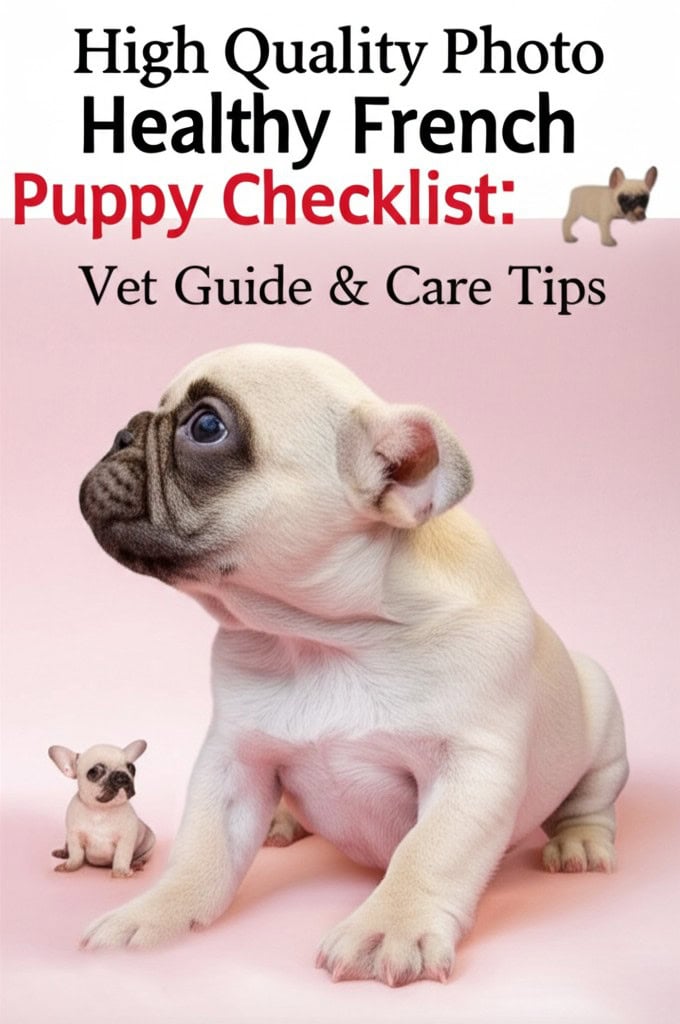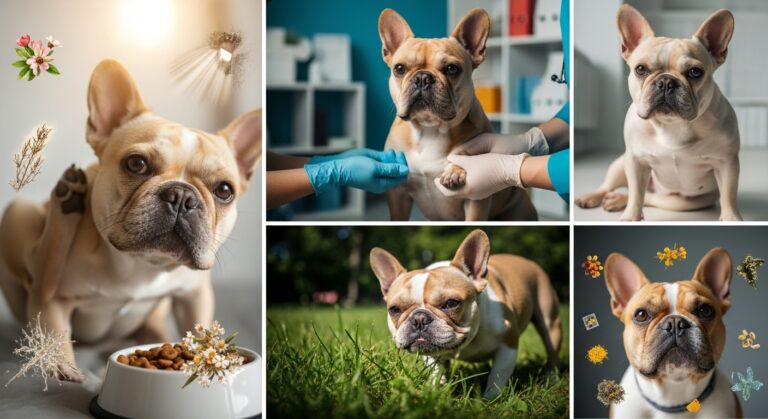Bringing home a new French Bulldog puppy is an exhilarating experience, filled with boundless joy and a touch of overwhelming responsibility. As a dedicated Frenchie parent, one of the most crucial steps you’ll take in their early life is scheduling and navigating their first vet visit. This isn’t just a routine check-up; it’s the foundational cornerstone for their long-term health and well-being. In our extensive experience, a well-planned initial veterinary appointment can set your Frenchie up for a lifetime of vitality, proactively identifying potential issues and establishing a trusted partnership with a healthcare professional who understands the unique needs of this beloved breed.
This comprehensive guide will walk you through every facet of your French Bulldog puppy’s first vet visit in 2025, from selecting the perfect veterinarian to understanding breed-specific considerations. We’ll ensure you’re fully prepared, confident, and ready to give your new companion the best possible start.
Key Takeaways
- Schedule your French Bulldog puppy’s first vet visit between 8-10 weeks of age, or immediately after bringing them home.
- Prioritize finding a veterinarian with specific experience and knowledge of French Bulldog health concerns.
- Comprehensive preparation, including gathering medical records and desensitizing your puppy, significantly reduces visit stress.
- The first visit involves a thorough physical exam, initial vaccinations, and a discussion on preventative care.
- Effective communication with your vet about your puppy’s history and any concerns is paramount for tailored care.
Table of Contents
- Why Your French Bulldog Puppy’s First Vet Visit is Crucial
- Choosing the Right Veterinarian for Your French Bulldog
- Scheduling Your French Bulldog Puppy’s First Vet Appointment
- Preparing Your French Bulldog Puppy for the Vet Visit
- What to Bring: Essential Supplies & Documentation
- During the Vet Visit: What to Expect & How to Communicate
- Addressing Breed-Specific French Bulldog Health Concerns
- Building a Long-Term Relationship with Your Veterinarian
Why Your French Bulldog Puppy’s First Vet Visit is Crucial

The moment your French Bulldog puppy arrives home, they embark on a journey of discovery and growth. Their initial vet visit is not merely a formality but a critical proactive measure. It’s an opportunity for early detection of any congenital conditions or emerging health issues, allowing for timely intervention that can prevent more serious problems down the line. Think of it as laying the robust foundation for a strong, healthy future.
During this vital appointment, your veterinarian will not only conduct a comprehensive health assessment but also initiate a tailored preventative care plan. This includes essential vaccinations and parasite control, safeguarding your Frenchie against common, potentially life-threatening diseases. It’s a clear demonstration of responsible pet ownership and a commitment to their lasting well-being.
Choosing the Right Veterinarian for Your French Bulldog
Selecting the right veterinarian for your French Bulldog puppy is perhaps one of the most important decisions you’ll make. French Bulldogs, with their brachycephalic (short-nosed) structure and charming wrinkles, come with a unique set of health considerations. Therefore, finding a vet with specific qualifications and extensive experience with this breed is non-negotiable.
How do you find such a specialist? Start by tapping into your network. Seek recommendations from fellow French Bulldog owners, local breed clubs, or reputable dog enthusiasts. Their firsthand experiences can offer invaluable insights into a clinic’s expertise and the quality of care. Beyond word-of-mouth, we always recommend conducting your own thorough research. Read online reviews, check clinic websites, and even call clinics to ask about their experience with French Bulldogs. In our experience, a vet who actively discusses breed-specific concerns like French Bulldog breathing issues or potential skin fold dermatitis is likely a good fit. Look for a team that demonstrates genuine understanding and compassion for this special breed.
Scheduling Your French Bulldog Puppy’s First Vet Appointment

Once you’ve identified a potential veterinary clinic, the next step is to schedule that all-important first visit. We recommend booking this appointment as soon as you bring your new furry friend home. Puppies, especially French Bulldogs, are quite vulnerable in their early weeks, making early veterinary assessment crucial.
When is the ideal time? Generally, the first vet visit should occur when your puppy is approximately 8 to 10 weeks of age. This timing is critical as it aligns with their initial need for vaccinations against common diseases like parvovirus and distemper, as well as a thorough baseline health check. If your puppy has already received initial vaccinations from the breeder, be sure to note these dates, as they will guide the subsequent booster schedule. Most clinics offer various booking methods—phone, online portals, or even mobile apps—so choose what’s most convenient. When booking, provide all relevant details: your puppy’s age, breed, and any initial concerns you might have. Given that veterinary clinics can be quite busy, particularly during peak seasons, booking well in advance ensures you secure a convenient time slot.
Preparing Your French Bulldog Puppy for the Vet Visit
A positive first vet visit can shape your French Bulldog’s attitude towards future appointments. Strategic preparation is key to minimizing stress and ensuring a smooth experience. This goes beyond just getting ready on the day; it involves thoughtful socialization and training.
Socialization and Desensitization
Start early by exposing your Frenchie puppy to various sights, sounds, and gentle handling. This builds resilience and confidence. Take short, positive trips in the car to get them accustomed to travel. Practice gently handling their paws, ears, and mouth – actions that will occur during the exam. Positive reinforcement, using treats and praise, during these desensitization exercises is incredibly effective. For more tips on general French Bulldog training and behavior, consider our detailed guides.
Familiarizing with the Clinic Environment
Beyond home preparation, consider ‘happy visits’ to the vet clinic. These are short, non-medical trips where your puppy can simply enter the waiting area, receive treats and praise, and then leave. This helps them associate the clinic with positive experiences rather than just pokes and prods. Allow them to sniff around, observe other animals (from a safe distance), and get used to the unique smells and sounds without the pressure of an examination. Always keep them leashed or in a secure carrier during these visits for their safety and comfort.
What to Bring: Essential Supplies & Documentation
Effective communication with your veterinarian starts with being prepared. Before you head to the clinic for your French Bulldog puppy’s first vet visit, gather these essential items and documents:
- Puppy’s Medical Records: Crucially, obtain all health records from your breeder or previous owner. This includes vaccination history, deworming dates, any past treatments, and ideally, pedigree or genetic testing information. These records provide your vet with vital background on your puppy’s health and potential hereditary predispositions.
- Collar/Harness and Leash: For safety and control both in the waiting room and during the examination.
- Secure Pet Carrier: Especially for smaller puppies, a carrier offers a sense of security and protection from other animals in the waiting area.
- Favorite Toy or Blanket: A familiar scent can provide comfort and reduce anxiety in an unfamiliar environment.
- High-Value Treats: Excellent for positive reinforcement during the visit, making new experiences more pleasant.
- List of Questions/Concerns: Jot down any questions about diet, French Bulldog nutrition, training, behavior, or health symptoms you’ve observed.
- Insurance & Payment Information: Have these ready to streamline the check-in and checkout process.
During the Vet Visit: What to Expect & How to Communicate

The first vet visit is a comprehensive experience designed to assess your French Bulldog puppy’s overall health and establish a baseline for their future care. Here’s what you can expect:
Ensuring Safety and Comfort
Upon arrival, keep your puppy securely leashed or in their carrier. The unfamiliar environment and presence of other animals can be overwhelming. Speak softly, offer gentle pets, and provide treats to keep your puppy calm. Avoid sudden movements or loud noises that might startle them. Remember, a positive early experience helps build a lasting positive association with veterinary care.
Communicating Your Puppy’s Medical History
Once in the exam room, be prepared to share your puppy’s detailed medical history with the veterinarian. Provide accurate and concise information about their vaccination history, any known allergies, previous illnesses or injuries, and any medications or supplements they’ve received. Discuss their current diet (e.g., homemade diet vs. commercial food), appetite changes, energy levels, and any behavioral observations. This open dialogue empowers your vet to make informed decisions and tailor a personalized care plan for your Frenchie.
The Physical Examination
Your vet will perform a thorough head-to-tail physical examination. This includes:
- Overall Observation: Assessing body language, temperament, and gait.
- Palpation: Gently feeling the body for any abnormalities, checking the abdomen, and assessing for pain or discomfort.
- Body Condition Score: Evaluating weight, muscle tone, and general physical condition.
- Eyes, Ears, Nose, & Mouth: Checking for signs of infection, inflammation, or dental issues (French Bulldog dental care starts young!).
- Heart & Lungs: Listening with a stethoscope for any irregularities in breathing or heart rhythm.
Vaccinations and Preventive Care
Based on your puppy’s age and history, the vet will administer initial vaccinations against diseases like parvovirus, distemper, and rabies. They will also discuss a comprehensive preventative care plan, which includes deworming, flea and tick prevention, and heartworm medication. Understanding this schedule and adhering to it is paramount for your Frenchie’s protection.
Addressing Breed-Specific French Bulldog Health Concerns
As experts in French Bulldog care, we know these charming companions have specific health considerations that your vet should be keenly aware of. Your first visit is an excellent opportunity to discuss these in detail:
- Respiratory Issues (Brachycephalic Obstructive Airway Syndrome – BOAS): Due to their short snouts, French Bulldogs can be prone to breathing difficulties. Your vet will assess their breathing and discuss signs of distress, especially in hot weather or during exertion. It’s vital to monitor their comfort and prevent overheating. We’ve compiled extensive information on why French Bulldogs snort and common breathing challenges.
- Skin Problems & Allergies: The adorable facial and body folds of French Bulldogs can trap moisture and debris, leading to skin infections or allergies. Your vet can advise on proper wrinkle cleaning and identify potential allergens, which might be dietary (French Bulldog allergies and diet) or environmental.
- Orthopedic Concerns: French Bulldogs can be susceptible to spinal issues and patellar luxation. Your vet will evaluate their joint health.
Don’t hesitate to ask questions about these and any other concerns you might have regarding your French Bulldog’s unique health profile. This proactive approach ensures you’re equipped to manage their care effectively.
Building a Long-Term Relationship with Your Veterinarian

Your puppy’s first vet visit is just the beginning of a lifelong partnership. Establishing a strong, trusting relationship with your veterinarian is crucial for your French Bulldog’s ongoing care. Regular follow-up visits, typically annually for routine check-ups and vaccinations, allow your vet to monitor your Frenchie’s growth, development, and overall health trajectory. This continuity of care means they’ll have a comprehensive understanding of your pet’s medical history, allowing for personalized advice and early detection of changes.
We highly encourage open communication. Share any shifts in your Frenchie’s behavior, appetite, activity levels, or general health, even if they seem minor. Being proactive in discussing concerns will ensure your beloved companion receives the best possible care for many happy years to come. Remember, your vet is your most valuable ally in keeping your French Bulldog healthy and thriving.
Helpful Resources & References
- AKC: Your Puppy’s First Vet Visit: What to Expect
- AAHA: New Puppy/Kitten FAQ
- AVMA: How to Choose a Veterinarian
- University of Wisconsin-Madison: French Bulldog Health Concerns
Hi, I’m Alex! At FrenchyFab.com, I share my expertise and love for French Bulldogs. Dive in for top-notch grooming, nutrition, and health care tips to keep your Frenchie thriving.


